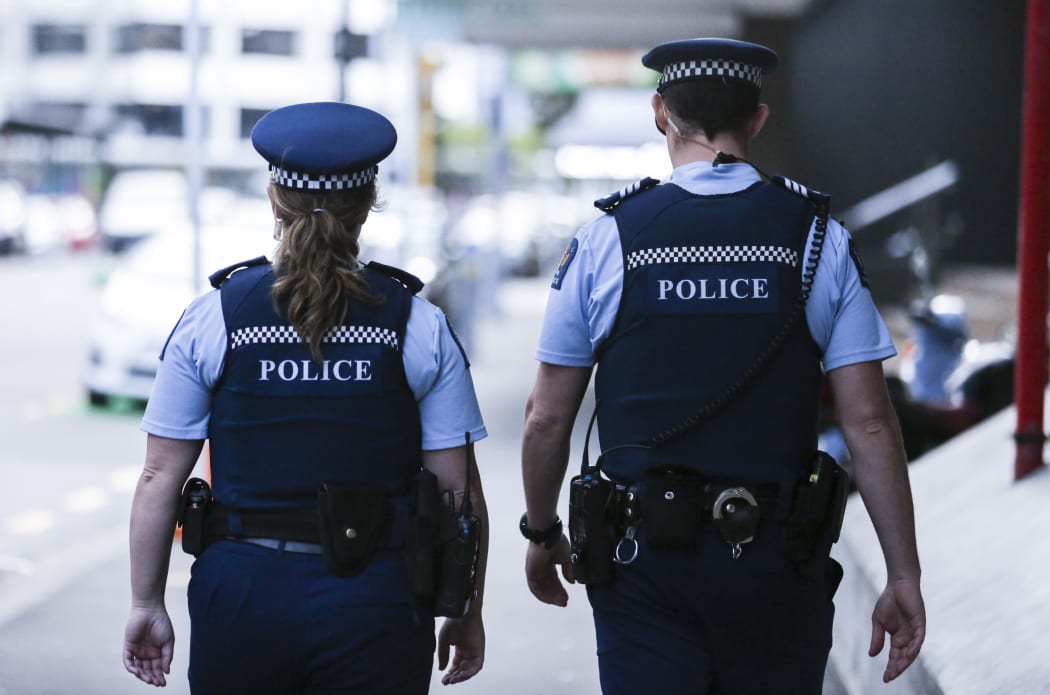The new plan from police to train up more officers for higher-risk situations is being described as a worrying step towards a fully armed force.

File image. Photo: RNZ / Richard Tindiller
The government is investing $45 million to fund police tactical teams, frontline training, intelligence analysis and extra staff. It says the rostered teams of tactical response officers is not a return to the controversial Armed Response Teams (ARTs) which were ended last year.
Chester Borrows, ex-police and former chair of the government's Safe and Effective Justice working group, said the new model was less inflammatory than the Armed Response Teams approach.
He liked how officers would wear normal uniforms but have better training and closer access to weapons.
"It looks far more strategic and technical than the blunt force of just ARTs driving around in big vehicles wanting to bring on what appeared to be some pretty strong and lethal force," Borrows said.
The model will see an additional 200 staff with advanced tactical training to Armed Offenders Squad-qualified standard. The officers will focus on high-risk offenders, firearms, methamphetamine, and organised crime groups.
With more aggression on the streets, police needed to be prepared, Borrows said.
"There needs to be a proportionate response, and I'm not surprised that the police are going to train more people more highly in the use of special technical weapons and technical approaches - that's just the world we live in."
However, University of Waikato senior lecturer of criminology Dr Juan Tauri was not convinced.
He believed the new model was not much different from the much-criticised ARTs trialled after the Christchurch attacks in March 2019.
It was just another step towards a fully-armed police force and the fund was a huge amount of money, Tauri said.
"What's it justified by? Do have we had significant increase for example in the murder rate and murder related to, for example, the use of firearms? No, not significantly in the last 20-30 years.
"Have firearm related offences increased in some areas, yeah, but to the extent that justifies that spend, I think that's questionable."
He also worried that Māori would end up being at the sharp end of increased police firepower.
"Whether it's a good thing or not, well, being a Māori academic and the research that I do, I was always concerned about their increase and in their powers and increase in their ability to inflict violence against people because we know that it's overwhelmingly used against us."
Ex-police negotiator Lance Burdett said the new strategy was much better than the ART trial and he said it will cause hardened criminals to think twice in front of any officer.
"The beauty of this type of response model is that people, the public won't know who's the trained officer and who's not, so it will bring a period of caution for people who might otherwise want to use a firearm against the police."
National Māori Authority chairperson Matthew Tukaki said police had consulted him and his organisation regarding this model.
He believed the training for officers was not just tactical but also cultural, to avoid Māori being unfairly targeted.
"There's a cultural dynamic as well, making sure that police understand and that often the tension between police on the frontline and people of colour is that mistrust, and so it's about building relationships as well," he said.
Auckland Manukau Ward councillor Alf Filipaina said it was good that the police want consultation and feedback.
He supported the ART initiative.
"If there's an armed offender out there in the community, I would want the police to get there as soon as possible, so then nobody from our community is in the crossfire or even gets shot or even killed," Filipaina said.
Police said they would engage with staff, iwi and the wider public over the coming weeks to seek feedback before piloting of the model and a national rollout.


